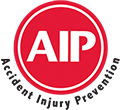Forklifts are essential machines that work within warehouses, on construction sites, and in industrial settings – and even though they are an important piece of the puzzle when it comes to getting the job done, they can also be dangerous when handled incorrectly, which is why ensuring you and your team have proper safety training is imperative.
This comprehensive guide is here to help you learn the Rules of forklift safety, why proper training matters, what you need to operate a forklift, course details, and practical tips you can implement right away.
Let’s dive in!
Why Forklift Safety Matters
When operating a forklift without proper instruction, it’s like driving a car completely blindfolded: it’s a recipe for serious injury (or in some cases, death), possible equipment damage, and costly downtime. Having industry-leading Forklift Safety Training transforms operators into safe, competent professionals who protect not only themselves when they handle this piece of equipment, but, their co-workers and company assets as well.
Thousands of serious injuries and many fatalities occur annually due to forklift incidents, and many of these accidents are easily preventable with correct training, equipment inspections, and safe operating practices.
Top 10 Rules of Forklift Safety
Here are the top ten rules every operator and supervisor should know:
1. Ensure only trained employees operate the forklift
- Only personnel who have completed formal Forklift Safety Training and been authorized by their employer should operate forklifts.
- Training includes classroom theory, hands-on practice, and a demonstrated competency check.
- Authorization should be documented; employers must keep records of who is certified.
2. Inspect the forklift before each use
- Perform pre-start checks outlined by the manufacturer: brakes, steering, controls, forks, tires, lights, fluid levels, horn, and safety devices.
- Replace or tag out defective equipment. A routine inspection helps identify any possible malfunctions early on and prevents breakdowns or accidents.
3. Operate at a safe, controlled speed
- Maintain a speed appropriate for the load, visibility, floor conditions, and traffic in the area.
- Reduce speed when turning, approaching intersections, or working in congested areas to avoid tip-overs and collisions.
4. Be mindful of your surroundings
- Scan for hazards: potholes, debris, spills, changes in floor surface, ramps, and pedestrian traffic.
- Keep aisles clear and use designated forklift lanes when available.
- Remove obstacles before moving large loads.
5. Wear appropriate personal protective equipment (PPE)
- Required PPE typically includes high-visibility clothing, a hard hat, safety boots (steel toe), and clothing that won’t snag (no loose sleeves).
- PPE is part of the overall Forklift Safety Training curriculum.
6. Always load and travel with the heaviest part of the machine upslope
- When travelling up or down inclines, orient the forklift so the heaviest end faces upslope.
- With a load, the load side is heavier – drive forward upslope.
- Without a load, the counterweight is heavier – drive backward upslope.
- Correct orientation reduces rollover risk.
7. Follow proper load handling techniques
- Never exceed the forklift’s rated capacity. Know the load centre and how it affects stability (the “stability triangle”).
- Keep loads low while travelling, tilt masts back slightly for stability, and secure loose items.
- Never use fork tips to push or pry loads, and never lift people using forks unless the proper safety platform and procedures are in place.
8. Stay aware of and protect pedestrians
- Use horns at blind corners and intersections. Make eye contact with pedestrians when possible.
- Never allow any person to stand or walk under the elevated forks or any loads.
- Implement and enforce pedestrian exclusion zones where practical.
9. Avoid abrupt stops and sudden maneuvers
- Abrupt braking or quick turns can shift loads and cause tip-overs.
- Plan movements, maintain safe following distances, and brake gradually.
- Train to anticipate traffic patterns and hazards to minimize the need for emergency maneuvers.
10. Park in designated areas and secure the machine
- It’s important to lower the forks to the ground, set the parking brake in place, turn off the engine, and remove the key before you exit the machine.
- Always park in designated spots to avoid blocking any walkways, aisles, or emergency exits and to reduce collision risks with workers, equipment or assets.
5 Reasons Why Forklift Safety Is Essential
- Reduces fatalities and/or injuries – Proper training and safe procedures dramatically lower the risk of fatal incidents like tip-overs and crushing accidents.
- Identifies any malfunctions early – Regular inspections and operator knowledge reduce mechanical failures.
- Establishes best safety practices – using standardized procedures (loading, speed control, PPE) creates more consistent, safer operations.
- Reduces costly delays – Fewer accidents mean fewer work stoppages, repairs, and lost inventory.
- Instills confidence and team morale – Workers who receive quality Forklift Safety Training feel safer and are more productive.
Operating a Forklift | Requirements and Skills
To legally and safely operate a forklift in Calgary (and similar jurisdictions), you need:
- Formal training and authorization from a qualified trainer. A driver’s license is not typically required to obtain certification, but competence is.
- Knowledge of relevant rules and legislation, employer policies, and site-specific procedures.
- Practical skills: driving, steering, load handling, pre-operation inspection, refuelling/recharging, parking, and ramp/dock operations.
- Awareness of manufacturer specifications – use the correct forklift type for the job (electric, propane, counterbalance, narrow aisle, side loader, etc.).
- For younger operators, local regulations may set minimum age limits (check jurisdictional rules).
Refresher training is strongly recommended every 3–5 years or more frequently based on workplace incidents, observed unsafe operation, or changes in equipment or working conditions.
Course Details | AIP Training Program
AIP Safety’s forklift programs synthesize the best practices and regulatory requirements into practical training:
- Forklift Initial – 8 Hours: Meets current CSA standard requirements, includes classroom and hands-on instruction, intended for students without prior experience. Certification is valid for three years.
- Topics covered – pre-op checks, stability triangle, load handling, steering, refuelling/recharging, pallet safety, dock operations, and operator safety manual development.
- Emphasis on – developing a professional, safety-first mindset, plus instruction on managerial responsibilities for maintaining a safe fleet.
Common Forklift Incidents & Finding the Root Causes
Understanding what goes wrong helps prevent future incidents. The leading causes of fatal forklift accidents include:
- Vehicle tip-over (42%) – often from improper turning, travelling with elevated loads, or unstable surfaces.
- Crushed by the vehicle (36%) – struck between any vehicle or between a vehicle and a stationary object.
- Hit or run over by a forklift (10%).
- Impacted by falling material (8%).
- Falls from the fork platform (4%).
Root causes: inadequate training, user error, lack of inspections, improper load handling, dangerous workplace layout, and mechanical failures. Up to 70% of incidents can be prevented with proper Forklift Safety Training and site management.
How Training Improves Safety and Productivity
Investing in Forklift Safety Training yields measurable benefits:
- Reduced incidence of accidents and near-misses.
- Lower downtime and repair costs by preventing equipment misuse and overloading.
- Improved compliance with legal and occupational health and safety regulations such as CSA, OH&S, OSHA – where necessary.
- Better employee retention and morale as staff feel valued and safer.
- Operational efficiency – trained operators move loads faster and with fewer errors.
Refresher courses and regular on-site assessments keep skills sharp and update teams on new standards, equipment, or site changes.
Final Notes | AIP Forklift Safety Training
Forklift operation is a high-responsibility task. Following the Rules of forklift safety and investing in quality Forklift Safety Training are the two best ways to protect people, equipment, and productivity. Whether you’re hiring new operators or maintaining an experienced fleet, a consistent program of initial training, site-specific instruction, inspections, and periodic refreshers will keep your workplace safer.
Ready to get your team certified?
Contact AIP Safety today to book your Forklift Safety Training, designed to build practical skills, ensure compliance, and make safety second nature on your jobsite.
Frequently Asked Questions
Do I need a driver’s license to operate a forklift?
Generally, no. A driver’s license is not required for forklift certification, but you must complete Forklift Safety Training and be authorized by your employer.
How old do you have to be to drive a forklift?
It depends on local regulations. Some jurisdictions permit operation at 16–17 with supervision; others require 18+. Check local legislation.
How much does forklift certification cost?
Costs vary widely. Certification courses may start with modest fees for group workplace training and higher fees for individualized in-class programs. Prices depend on course type, duration, and whether practical evaluation is included.
How long does it take to learn to drive a forklift?
A typical initial course is 8 hours (theory + practical). Refresher courses can be 4 hours or tailored to the experience level. Additional supervised driving time may be recommended.
Who should conduct forklift training?
An instructor with the necessary knowledge, experience, and credentials to evaluate trainee competency must deliver training. Employers should ensure instructors can tailor lessons to equipment and site specifics.
Are records required?
Yes. Training documentation should detail what was covered and include the instructor's and trainee's signatures. Employers should retain these records for compliance and audit purposes.
Is annual training required?
Not typically – in many areas certification is valid for up to three years – but employers may set more frequent refresher intervals based on workplace risk, incidents, or changing conditions.

